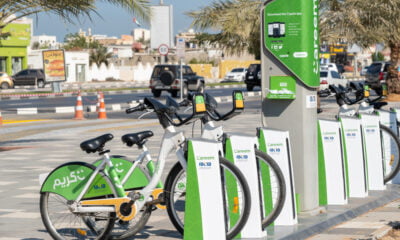

News
IATA calls for governmental support
The International Air Transport Association (IATA) is calling for governments to step up creation of sustainable jobs and increase global economic development by working with the aviation industry.
“Sustainability depends not only on what airlines do for themselves but also the policies adopted by governments”, said Tony Tyler, IATA director general and CEO at the International Civil Aviation Organization (ICAO) Air Transport Symposium. Tyler believes aviation is a driving force for social and economic development, and highlighted the need for a globally coordinated approach to managing aviations 2% contribution to man-made carbon dioxide emissions.
“Aviation is a business driver of economic and social development that is so important to governments”, he explained.
“About 3 billion people fly annually. And the nearly 50 million tonnes of cargo transported by air represents some 35% of the value of goods traded internationally.”
Aviation is certainly a giant in industry terms. A recent Oxford Economics study reported that global aviation is responsible for 56.6 million jobs and $2.2 trillion in economic activity—3.5% of global GDP.
In broadest terms, Tyler emphasizes the important role of the ICAO in delivering solutions and ensuring sustainability. “Regulation that is neither coordinated nor mutually recognised brings a high cost of compliance without corresponding benefits, while restricting airlines’ access to global capital and to markets has kept airlines financially weak.”
Additionally, IATA highlighted four main areas in need of urgent attention to ensure financial sustainability:
“Infrastructure: Modernisation of air traffic management is needed to reduce delays, save fuel and cut CO2 emissions.
“User Charges: Effective regulation of monopoly suppliers is required to ensure sufficient infrastructure, reasonable returns for operators and cost-efficient prices for airlines.
“Fees and Taxes: Policies are needed that re-invest aviation tax receipts back into the industry and to ensure that aviation is treated as an economic catalyst not a cash cow.
“Regulation: An approach is needed that resists the urge to micro-manage competition, allows airlines to explore different business models and enables market forces to play out.”
Perhaps the most ambitious of the three targets, aims to cut net emissions in half by 2050 compared with 2005. “We cannot do that without government cooperation,” Tyler notes.
“That is why Europe’s inclusion of international aviation in its emissions trading scheme is counter-productive.”
“The regional approach distorts markets. And it will not have the positive impact on sustainability of globally coordinated measures through ICAO. On top of that, the unilateral and extra-territorial approach is seen by non-European states as an attack on their sovereignty.”
Rather than focussing on allusions of “trade wars” the IATA are confident that cooperation between governments and the ICAO can maximise air transport’s social and economic benefits.
However, with a now seemingly predictable postponement of any kind of green or renewable energy strategy from our current UK government, it may be a long wait before the IATA’s plea for support is answered.
Further reading:
The Guide to Sustainable Investment
Cameron’s cowardly decision to cut keynote environmental speech


 Environment12 months ago
Environment12 months agoAre Polymer Banknotes: an Eco-Friendly Trend or a Groundswell?

 Features11 months ago
Features11 months agoEco-Friendly Cryptocurrencies: Sustainable Investment Choices

 Features12 months ago
Features12 months agoEco-Friendly Crypto Traders Must Find the Right Exchange

 Energy11 months ago
Energy11 months agoThe Growing Role of Solar Panels in Ireland’s Energy Future




























